MercoPress. South Atlantic News Agency
Tag: pork meat
-
Thursday, February 16th 2023 - 10:50 UTC
First shipment of Paraguayan pork lands in Taiwan
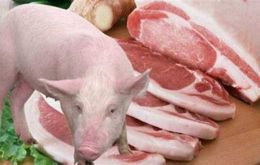
Paraguay's President Mario Abdo Benítez headed a delegation from the South American country visiting Taiwan to celebrate the arrival of the first pork shipment to that Asian market. Marking the occasion a ceremony was held in Taipei on Wednesday during which attendees could taste the new product as local businessmen pledged to increase imports shortly.
-
Monday, October 18th 2021 - 09:13 UTC
Argentine pork meat exports fall 80% in third quarter of 2021, study shows
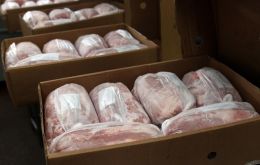
Argentine exports of pork meat have contracted 80% in the third quarter of 2021 due to a fall in Chinese demand and a sharp decline in international prices, despite a steady domestic demand, it was reported.
-
Wednesday, October 28th 2020 - 09:10 UTC
China in nine months imported 3,9 million tons of pork and 1,57 million tons of beef

Chinese imports of meat and offal totaled 830,000 tons in September, 63% higher than the volume recorded for the same month last year, based on information from Beijing's customs office.
-
Thursday, July 23rd 2020 - 07:02 UTC
US pork inventories down 25% in twelve months after plants slowed production
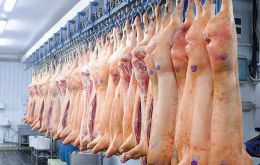
United States frozen pork inventories were down 25% from a year earlier at the end of June, the US Agriculture Department said on Wednesday after outbreaks of the coronavirus among meatpacking workers slowed production.
-
Sunday, August 20th 2017 - 13:09 UTC
Argentina opens its market to US pork products
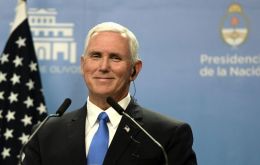
Argentina has agreed to allow imports of U.S. pork products for the first time since 1992, the White House said in a statement on Thursday. “Today’s announcement is a big win for American pork producers and proves that President Trump is getting real results for America’s farmers and ranchers,” said Vice President Pence.
-
Wednesday, November 7th 2012 - 22:52 UTC
Global meat production reached 297 million tons last year, up 0.8% over 2010
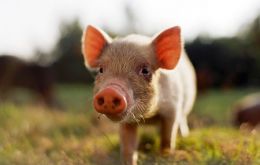
Global meat production rose to 297 million tons in 2011, an increase of 0.8% over 2010 levels, and is projected to reach 302 million tons by the end of 2012, according to new research conducted by the Worldwatch Institute.
-
Thursday, August 2nd 2012 - 06:53 UTC
Brazilian government to the rescue of pork farmers; excess production
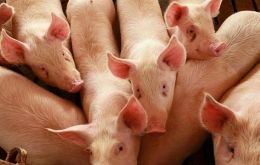
The Brazilian government will spend 30.4 million Reais (15.05 million dollars) to buy 76,000 metric tons of excess live swine, through a minimum-price plan created to help Brazilian producers get out from under a national oversupply of pork, the Ministry of Agriculture announced.
-
Monday, March 5th 2012 - 19:09 UTC
Taiwan reluctantly accepts US beef imports with “safe level” of ractopamine
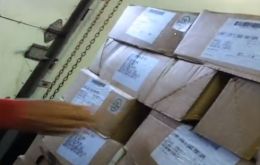
The Taiwanese Executive was leaning toward conditionally lifting a ban on the import of US beef that has been grown with a leanness-enhancing drug banned in Taiwan, the government said Monday.
-
Friday, July 22nd 2011 - 01:59 UTC
Weak Spanish government conditions enthusiasm for an EU/Mercosur deal
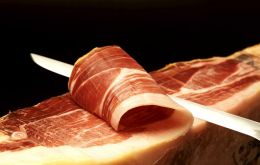
The Spanish government's enthusiasm for an European Union free-trade agreement with Mercosur remains solid and Madrid seems willing to put some sectors of agriculture at risk in exchange for access to new markets for the country's multinationals.
-
Wednesday, July 6th 2011 - 15:48 UTC
China hikes rates for the third time this year to combat inflation
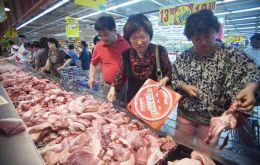
China has increased its main interest rates for the third time this year to try to curb inflation. Chinese central bank, the People's Bank of China, said its one-year lending rate would rise to 6.56% from 6.31% and its one-year deposit rate to 3.5% from 3.25%.
